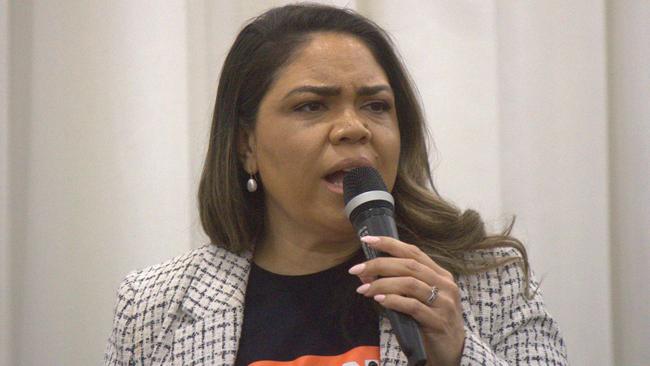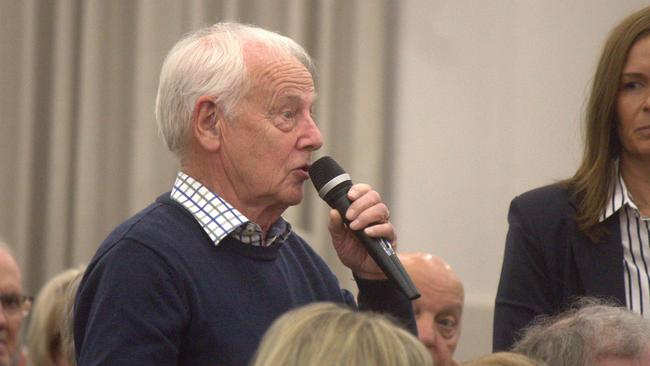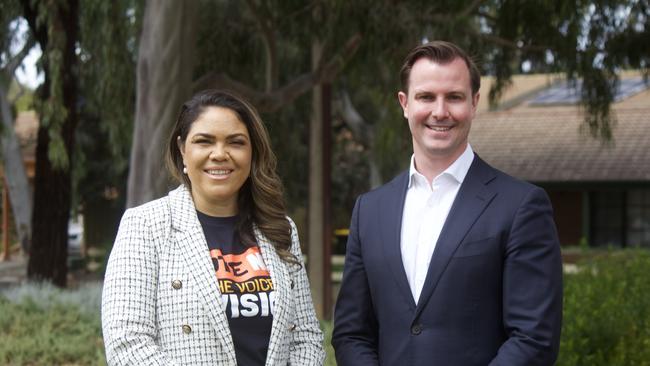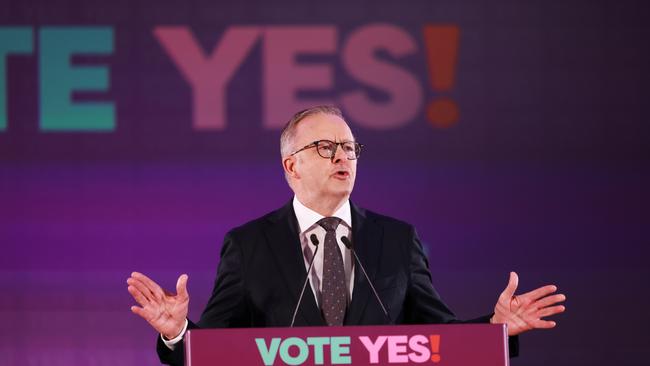Liberal MP James Stevens and Senator Jacinta Price bring No campaign to SA
One of the ‘No’ campaign’s most prominent voices has hosted a 300-person forum in Adelaide’s east, as SA shapes up as a key battleground for the Voice referendum.
SA News
Don't miss out on the headlines from SA News. Followed categories will be added to My News.
Liberal senator Jacinta Nampijinpa Price has declared SA a key Voice to Parliament battleground, launching a community ‘Q and A’ session in the heart of one of the state’s blue-ribbon seats.
As the campaign for the Voice begins ahead of the October 14 referendum, the shadow minister for Indigenous Australians stood alongside Liberal MP James Stevens at Payneham Community Hall on Friday, telling a 300-person crowd she believed constitutional representation would “divide Australia”.
Senator Nampijinpa Price, a Warlpiri woman, has been advocating for the ‘No’ campaign, saying there was “no evidence” to show a constitutionally enshrined Voice to Parliament would lead to better outcomes for First Nations people.
“The proponents (of the Yes vote) have been very positively vocal about how they see the Voice going to be playing out for them,” she said.
“The same proponents are saying nothing about how it is supposed to improve the lives of our most marginalised Indigenous Australians.”


Leading Indigenous rights advocate Tanya Hosch has previously addressed this concern, saying research was clear that allowing people to make decisions over issues that directly impacted them led to better outcomes.
“If you look at Indigenous governance matters inside and outside Australia, that concept of having a say over matters that affect you demonstrates the possibilities for much better social and economic outcomes on all of the indicators you would care to measure,” Ms Hosch said.
Senator Nampijinpa Price also claimed the Voice would lead to forced payment of reparations to Indigenous people – a notion flatly rejected by the architects of the proposal and Prime Minister Anthony Albanese.
Mr Steven’s seat of Sturt is among the most precarious Liberal-held seats in the country, after last election’s ‘teal wave’ of affluent voters shifted towards moderate candidates – with a 0.5 per cent margin – and will be heavily targeted by the No campaign.
“We really will be relying on volunteers to make sure that the information is there for Australians to be well informed,” Senator Nampijinpa Price said.
SA is one of three states, including Tasmania and Western Australia, which will be the focus of both the Yes and No campaigns despite their comparatively smaller populations.

On Wednesday, the Prime Minister announced the referendum date at Elizabeth, in Adelaide’s northern suburbs, alongside hundreds of supporters for the Yes campaign.
Anthony Albanese said SA had a strong history of supporting progressive reforms and was confident the state would prove crucial to deciding the referendum’s success.
The question Australians will be asked to vote on to change the constitution later this year to include an Indigenous Voice to Parliament is:
“A Proposed Law: to alter the Constitution to recognise the First Peoples of Australia by establishing an Aboriginal and Torres Strait Islander Voice.
“Do you approve this proposed alteration?”
To pass, the referendum requires a 'double majority’ – a national majority of 'yes' votes, and a majority of states voting 'yes'.

Earlier this week, Yes campaigner Rachel Perkins said it was “important to remember” that a majority of Indigenous Australians supported a Voice.
“Indigenous people from all around the country, more than 80 per cent, have asked our fellow Australians to stand with us in this moment,” she said.
Premier Peter Malinauskas said the campaign launch was history repeating itself, as the yes campaign for the 1967 referendum that successfully included Aboriginal and Torres Strait Islander people in the census, was also launched in Adelaide.
“It is not a coincidence of history that the campaign to launch the 1967 referendum also started right here on Kaurna yerta (country),” Mr Malinauskas said.
“But allow me to speak plainly.
“I don’t know how South Australians will vote on October 14, none of us do.
“But what we do know is that South Australians are capable of making the really big decisions at the really important moments.”





